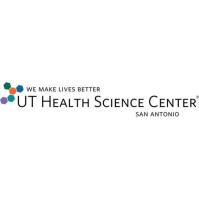South Texas Poison Center celebrates 20th anniversary of assisting families, health care providers
For 20 years, the South Texas Poison Center at the UT Health Science Center San Antonio has taken calls from frantic parents and grandparents as well as concerned health care professionals on a variety of poisoning exposures.
Physicians, nurses, nurse practitioners and pharmacists all work the phones as experienced poison specialists at the South Texas Poison Center.
Lizette Villarreal, M.A., assistant director of the South Texas Poison Center, said that during the last 20 years, many of the calls concern the same categories of poison.
In 1998 (the first year data was collected as it is now), the top five reported poisoning exposures in descending order were analgesics (drugs that relieve pain), household cleaning substances, cosmetics/personal care products, pesticides, and, lastly, insect and snake bites. In 2014, the top three remain the same. However, the fourth is now sedative/hypnotics/antipsychotics while the fifth is antihistamines. (See attached charts.)
“We always get waves of new poisoning exposures, but they don’t affect the top five. Now, the new types of poisonings involve electronic cigarettes, synthetic marijuana and energy drinks,” Villarreal added.
While some of the calls for poisonings change throughout the years, the staff at the South Texas Poison Center has not.
“We are very fortunate to have not had turnover in 11 years. Our poison specialists come here and stay. This means that those calling our poison center are getting very experienced and dedicated experts,” Villarreal said.
In addition to helping residents from 47 South Texas counties, the South Texas Poison Center also takes calls from emergency departments, urgent care centers and other health care facilities. Villarreal said health care professionals call the center to speak to Miguel Fernandez, M.D., a board certified medical toxicologist and the managing and medical director of the STPC. Dr. Fernandez is available for medical toxicology consults.
 “Many people go straight to the emergency department instead of calling us first. Ninety percent of our calls come from homes, and 70 percent of the time the patient can be safely managed at home by our health care professionals without a trip to a hospital. Many people can save a lot of money and time by calling the center first at 800-222-1222,” she said. Seventeen percent of ER patients involve poison-related events, Dr. Fernandez added.
“Many people go straight to the emergency department instead of calling us first. Ninety percent of our calls come from homes, and 70 percent of the time the patient can be safely managed at home by our health care professionals without a trip to a hospital. Many people can save a lot of money and time by calling the center first at 800-222-1222,” she said. Seventeen percent of ER patients involve poison-related events, Dr. Fernandez added.
Dr. Fernandez pointed out that more than half of his staff is bilingual. “We take calls in Spanish from South Texas as well as other parts of the state,” he said. “However, only 1 percent of the state’s calls are from Spanish speakers. We are trying to get the word out to the Spanish-speaking population that this free, confidential 24-7 service is available.”
For current news from the UT Health Science Center San Antonio, please visit our news release website, like us on Facebook or follow us on Twitter.
The University of Texas Health Science Center at San Antonio, one of the country’s leading health sciences universities, ranks in the top 13 percent of academic institutions receiving National Institutes of Health (NIH) funding. The university’s schools of medicine, nursing, dentistry, health professions and graduate biomedical sciences have produced more than 31,000 graduates. The $787.7 million operating budget supports eight campuses in San Antonio, Laredo, Harlingen and Edinburg. For more information on the many ways “We make lives better®,” visit www.uthscsa.edu.
-
Catherine Duncan
- March 20, 2015
- (210) 567-2570
- Send Email


